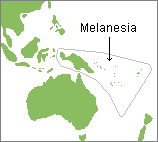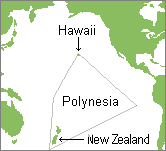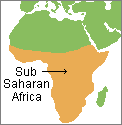Glossary of Terms
A B C D E F G H I J K L M N O P Q R S T U V W X Y Z
Select the first letter of the word you are seeking from the list above
to jump to the appropriate section of the glossary or scroll down to it
- A -
Back to Top
- B -
Back to Top
- C -
-
circumcision

- removing all or part of the foreskin of the penis. This surgery is usually done with a knife as part of a rite of passage marking the transition from childhood to adulthood for boys. See subincision.
- clitoridectomy

- cutting off all or part of the clitoris and sometime all or part of the labia. This surgery is usually done as part of a rite of passage marking the transition from childhood to adulthood for girls. In Western Nations, clitoridectomy is often referred to as "genital mutilation." See infibulation.
- core values
- the fundamental values that provide the basis for social behavior in society. They are what people believe is desirable or offensive, appropriate or inappropriate, and correct or incorrect.
- cultural relativism
- judging and interpreting the behavior and beliefs of others in terms of their own cultural traditions and experiences. This suspension of one's own ethnocentric views is necessary in order to begin to truly understand another culture or ethnic group. See ethnocentrism.
- culture

- the full range of learned behavior patterns acquired by people in the process of growing up in a society. Culture includes the knowledge, beliefs, customs, language, and practices acquired through learning.
Back to Top
- D -
-
descent

- socially recognized links between ancestors and descendents, such as the bond between children and their parents.
Back to Top
- E -
- enculturation

- the process of being socialized to a particular culture. This includes learning the language, customs, biases, and values of the culture.
- episiotomy

- cutting into the perineum in a woman's vaginal opening during the late stages of labor in anticipation of the delivery of a baby. This surgical procedure is routinely done in North America to prevent the tearing of vaginal tissues during delivery.
-
ethnocentrism

- the feeling that your own group's cultural traditions and values are correct and superior to all others. This is usually coupled with a generalized dislike and even contempt for people who have other cultural traditions. Ethnocentrism is universal in that all people around the world are ethnocentric to some degree. See cultural relativism.
Back to Top
- F -
-
fictive
kinship

- a socially recognized link between individuals created as an expedient for dealing with special circumstances, such as the bond between a godmother and her godchild. Fictive kinship bonds are based on friendship and other personal relationships rather than marriage and descent.
- formal education
- structured and directed teaching and learning primarily under the control and direction of adult teachers who are professional "knowers." Formal education is usually what happens in a classroom. See informal education.
Back to Top
- G -
Back to Top
- H -
Back to Top
- I -
-
indigenous

- referring to the native population of an area.
- indigenous world-view
- a world-view in which it is believed that humans are not separate from nature and the supernatural world. Living creatures and non-living objects in nature as well as supernatural beings are thought to be human-like in their motivations, feelings, and interactions. When the characteristics of this type of world-view were first proposed in the early 1950's by Robert Redfield, it was called a "primitive world-view." See metropolitan world-view.
-
infibulation

- Infibulation is partially closing off the opening to the vagina by sewing, pinning, or clamping part of the vulva. This surgery is usually done as part of a rite of passage marking the transition from childhood to adulthood for girls. See clitoridectomy.
- informal education
- learning as a result of imitation, experimentation, and repetitive practice of basic skills. This is what happens when children role-play adult interactions in their games. See formal education.
- inner-directed personality
- a personality that is guilt oriented. The behavior of individuals with this sort of personality are strongly controlled by their conscience. As a result, there is little need for police to make sure that they obey the law. These individuals monitor themselves. The inner-directed personality is one of the modal personality types identified by David Riesman in the early 1950's.
Back to Top
- J -
Back to Top
- K -
- kinship

Back to Top
- L -
- large-scale society
- generally a society with cities, industry, intensive agriculture, and a complex international economy. Such societies have socio-economic classes and a government with hierarchies of officials. The importance of kinship is diminished in comparison to the common pattern of small-scale societies.
Back to Top
- M -
 |
|
New Guinea and other nearby islands in the Southwest Pacific Ocean west of Polynesia. Indigenous people from this region are referred to as Melanesians.
- metropolitan world-view
- a world-view in which people have an emotional detachment between people and the realms of nature and the supernatural. Animals, trees, rocks, and other things in nature are "its" rather than "thous" and do not have human personalities. This separation of people emotionally from nature allows them to exploit it with little care for its well being. When the characteristics of this type of world-view were first proposed in the early 1950's by Robert Redfield, it was called a "civilized world-view." See indigenous world-view.
-
modal personality

- the most common personality type within a society. In reality, there is usually a range of normal personality types within a society. See inner-directed personality, other-directed personality, and tradition-oriented personality.

